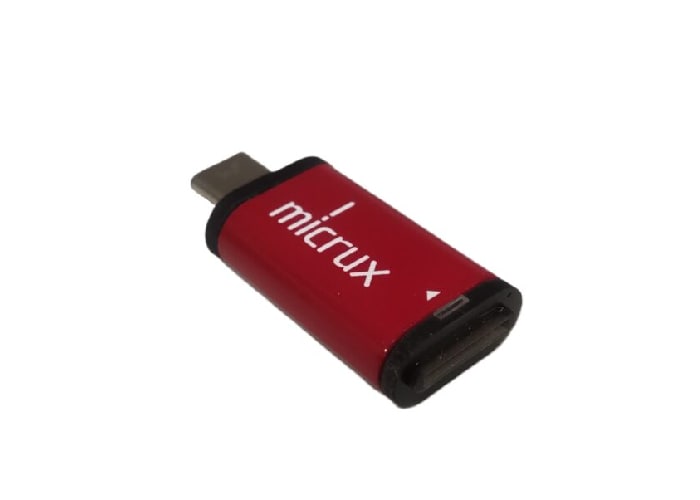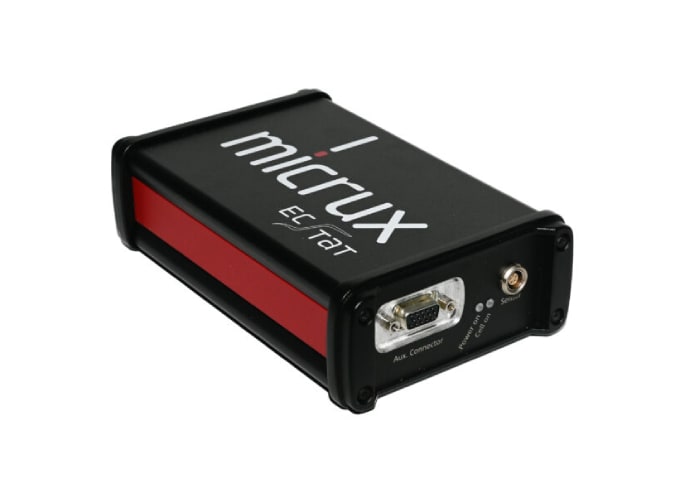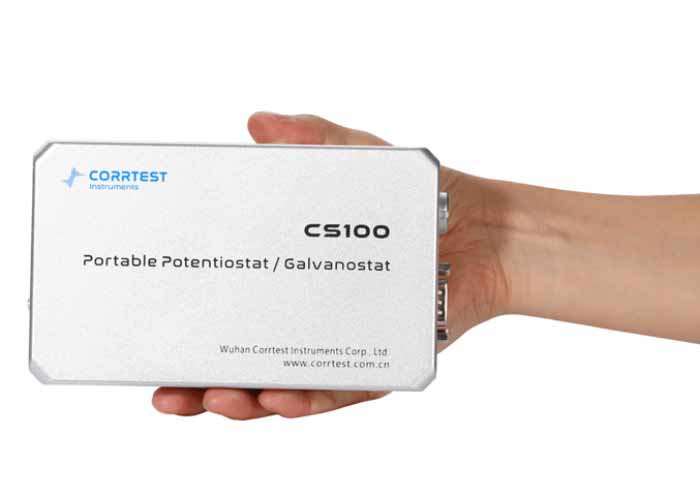Portable Potentiostat
Portable potentiostats ideal for mobile and field-based electrochemical testing in sensors, batteries, and corrosion. Compact, USB-powered, and lab-grade accuracy.

MicruX ECSens BIPOT Electrochemical Sensing Interface (USB BiPotentiostat)
- Dimensions: 39 x 17 x 9 mm (L x W x H)
- Operating modes: Bipotentiostat, Potentiostat
- DC potential range: ± 1.5 V
- Compliance voltage: ± 2.65 V
- Maximum DC current: ± 5 mA
- Weight: < 5 g

MicruX ECStat Electrochemical Station (ECSTAT2020)
- potential range: ±10 V
- Maximum current: ±30 mA
- Frequency range: 10 μHzto 1 MHz
- Operating modes: Bipotentiostat, Potentiostat, ZRA, Galvanostat, PEIS analyzer
- Current ranges: 100 pA to 10 mA (max. current: ± 30 mA)

CS100 Portable Potentiostat/Galvanostat (No EIS)
- Size / weight: 150mm x 90mm x 30mm, 500g
- Potential control range: ±10V
- Maximum current: ± 100mA
- Compliance voltage: ±10V

Corrtest CS100E Portable Potentiostat/Galvanostat with EIS (FRA)
- Size / weight: 150mm x 90mm x 30mm, 500g
- Potential control range: ±10V
- Maximum current: ± 100mA
- EIS frequency range: 10μHz ~ 1MHz
- Compliance voltage: ±10V
Portable Potentiostats - Compact Electrochemical Testing
Portable Potentiostat Overview
A portable potentiostat is a compact, handheld electrochemical device used to measure and control voltage and current in electrochemical cells. These lightweight instruments bring electrochemical testing out of the lab and into the field, making them ideal for mobile diagnostics, education, and real-world analysis.
Unlike traditional benchtop potentiostats, portable models are battery or USB powered and often connect directly to smartphones, tablets, or laptops via USB or Bluetooth. Despite their small size, they support a wide range of techniques including voltammetry, amperometry, and potentiometry — with some advanced models offering Electrochemical Impedance Spectroscopy (EIS).
Key Features and Benefits
-
Lightweight and Battery-Powered – Designed for portability and field testing
-
Mobile Connectivity – USB, Bluetooth, and smartphone compatibility
-
Supported Techniques – Voltammetry, amperometry, potentiometry, and optional EIS
-
User-Friendly Software – Simplified interfaces for quick deployment
-
Cost-Effective – Ideal for education, remote diagnostics, and budget-limited research
Common Applications
-
Environmental Monitoring – Detect heavy metals in water on-site
-
Clinical Diagnostics – Perform biosensor tests in remote or mobile settings
-
Food Safety Testing – Screen contaminants or degradation products
-
Corrosion Studies – Monitor metal surfaces or infrastructure in the field
-
Educational Use – Teach electrochemistry in classrooms or portable labs
Comparison: Portable vs Traditional Potentiostat
| Feature | Traditional Potentiostat | Portable Potentiostat |
|---|---|---|
| Size & Portability | Large, lab-based | Small, handheld/mobile |
| Power Source | Mains-powered | Battery or USB |
| Performance | High precision, advanced capabilities | Focused techniques, field-ready |
| Applications | Lab research, multi-channel analysis | On-site testing, education, diagnostics |
| Software | Complex and customizable | Streamlined and intuitive |
| Cost | Higher | Affordable |
Frequently Asked Questions (FAQs)
1. What is a portable potentiostat?
A portable potentiostat is a compact, field-deployable device that applies voltage and measures current in electrochemical cells. It offers mobility and is typically battery-powered, ideal for testing outside traditional lab settings.
2. How does a portable potentiostat work?
It controls voltage between electrodes and measures current response using a three-electrode configuration. The result reveals information about chemical reactions or analytes present.
3. What electrochemical techniques are supported?
Most portable potentiostats support voltammetry, amperometry, and potentiometry. Some advanced models also include Electrochemical Impedance Spectroscopy (EIS).
4. What are the advantages over traditional potentiostats?
Portable models are lightweight, easy to use, and cost-effective — ideal for fieldwork, teaching, and fast diagnostics. Traditional ones are more precise and versatile for in-depth lab research.
5. Can portable potentiostats connect to smartphones?
Yes. Many models support Bluetooth or USB connection to smartphones and tablets, allowing real-time data collection in the field.
6. Are portable potentiostats suitable for education?
Absolutely. Their affordability, safety, and simplicity make them ideal for classroom use, student projects, and remote experiments.
7. Can I perform EIS with a portable potentiostat?
Only some advanced portable models offer EIS. Be sure to check specifications if impedance measurements are essential to your research.
